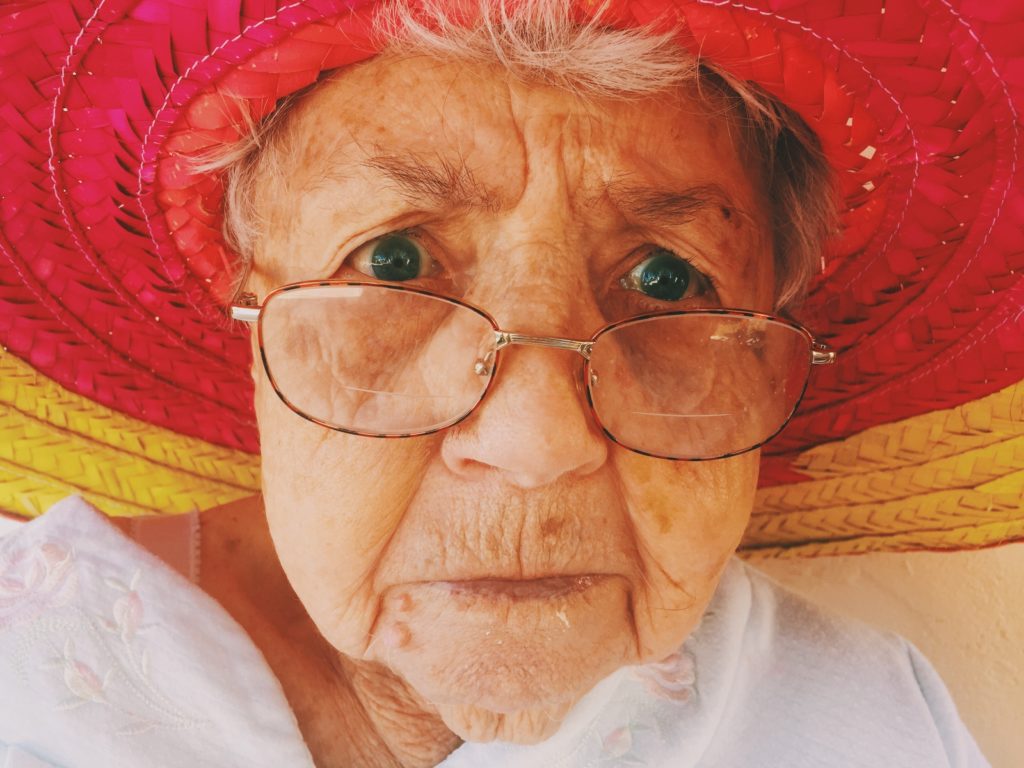
You might be happy to know that there are no generational limits on how far you can go back to claim Italian dual citizenship. Therefore, even if you have distant Italian ancestry you can still qualify. From how to choose which ancestor to “use” to collecting your documents, I’ll explain everything about getting Italian citizenship through great grandparents! So grab a cuppa, sit back, and get ready to take some notes.
Which great grandparent to use?
This is an excellent question. In fact, it’s probably where you should start before anything else. When it comes to Italian citizenship, the rule I always use is “men come first” (sorry, ladies!). So, always try looking down the path with the most male ancestors first.
There’s a practical reason for this. Italian citizenship law has often been discriminatory towards women. In fact, Italian women could not even pass on citizenship to their own kids before January 1, 1948! It’s horrible, I know. But it’s what we’re working with.
The fact is, Italy has never placed any restriction on men passing citizenship to children. For this reason, it’s always easier to trace your paternal line or male relatives first. Therefore, if you have the following hypothetical Italian ancestors:
- Paternal great grandfather > paternal grandfather > father > you
- Paternal great grandmother > paternal grandmother > father > you
I’d always recommend exploring your all-male line first.
Determining eligibility through great grandparents
Figuring out if you qualify is exactly the same, just going back further. For every generation you go back, just make sure each subsequent generations fits the criteria and you’re golden. You can use the information in this post to go back as far as you need, even more distant than great grandparents.
[su_note note_color=”#FFFF66″ text_color=”#333333″ radius=”3″ class=”” id=””]Important! You can’t “skip” generations to qualify. For example, if you don’t qualify through your dad, you can’t qualify through your paternal grandfather. Each single generation must be eligible for you to qualify.[/su_note]
Here are the rules to qualifying:
Your Italian ancestor was alive (even anywhere in the world) after March 17, 1861
On this date the country of Italy was officially formed and Italian citizenship became “a thing.” Therefore, if your ancestor died before this date–even if she or he was born in territory that is now part of Italy–they weren’t actually technically an Italian citizen. Ever.
Your ancestor’s naturalization date is super important

Think of Italian dual citizenship like a chain.
When an Italian citizen parent has a child, that Italian citizenship gets passed down automatically. This is an unbroken chain, with each single link having or being eligible for Italian citizenship.
But in the past this chain could be broken.
Before August 15, 1992, any Italian who became a citizen of another country automatically lost Italian citizenship. And any Italian who naturalized before July 1, 1912 could never pass on citizenship to his or her child, even a child born before said naturalization. These two events would “break the chain,” so to speak, so you have to be careful of two important dates.
If your Italian ancestor ever became a citizen of any other country but Italy, he or she:
- Must have become an American (or other) citizen only after July 1, 1912
- Must have become an American (or other) citizen after the birth of his/her child
As long as your Italian ancestor meets these two requirements, you should qualify for Italian dual citizenship.
[su_note note_color=”#FFFF66″ text_color=”#333333″ radius=”3″ class=”” id=””]Not so fast! Italian citizenship law is chock full o’ loopholes. Italians love a loophole so why should Italian citizenship law be any different? Here’s one of them: if your Italian ancestor naturalized before July 1, 1912 you can still qualify… as long as his or her American-born child was already an adult when the parent became American. In that case, this rule doesn’t apply and you’re still eligible as long as you meet all other criteria. [/su_note]
But what if your Italian ancestor never became an American (or other) citizen at all?
I’m glad you asked.
If your Italian ancestor never became a citizen of another country besides Italy, you automatically qualify! You’re one of the lucky ones who can qualify pretty much without any other further research. Auguri. You may still be, however, a 1948 case which I will explain next.
If you have any women in your “direct line,” you can still qualify
Remember how I was saying that Italian citizenship law was discriminatory to women? Here’s where that comes into play.

Before January 1, 1948 (the date Italy got its modern constitution), women were not allowed to pass on citizenship to their children. Only under very strict exceptions could children gain Italian citizenship through their moms, including:
- An unknown father
- A father who passed away
- A father whose own citizenship didn’t automatically pass on to the children, etc.
In 2009, a group of Brazilian people of Italian descent hired an attorney to take their case to court. After all, why should the descendants of Italian women be treated any different from those of Italian men? Italian law explains that all citizens are equal. They won their case and got citizenship.
Ever since then, thousands of people have followed their example. Today, the Italian government no longer even defends itself against these so-called “1948 cases.” However, since the law itself has not changed you’ll still need to take it to court.
Documents needed for Italian citizenship through great grandparents
To get Italian dual citizenship, you will have to hand in a packet of records showing that you qualify in black and white. Think of it like recreating your family tree using birth, marriage, and death records to show an unbroken chain of citizenship. At a minimum, you will need the following:
For your Italian-born ancestor
- Birth certificate (“estratto dell’atto di nascita”) from Italy
- Italian marriage certificate (“estratto dell’atto di matrimonio”) if married in Italy or marriage certificate if married outside Italy, plus apostille and translation
- Naturalization records or proof of non-naturalization
- Death certificate, plus apostille and translation
For your direct line, intermediate ancestors
- Birth certificate, plus apostille and translation
- Marriage certificate, plus apostille and translation
- Death certificate, plus apostille and translation
For you
- Birth certificate, plus apostille and translation
- Marriage certificate, plus apostille and translation
Some consulates will require you obtain birth and death records for non-direct line ancestors, too.
Also, if you have any divorces you’ll need to obtain those records plus a certificate of no appeal.
The best practice here is to check your consulate’s website. They all have detailed information with checklists of what you will need.
Handing everything in
Once you determine eligibility and gather your documents, you’ll need to go to your consular appointment. Or, if you have a 1948 case, you’ll hand everything in to your attorney.
After handing everything in, the Italian government has up to 24 months to process your application. You’ll get the official confirmation, enroll in AIRE (Registry of Italians Living Abroad) and then get your passport. And that’s it–you just got Italian citizenship through great grandparents!
Want professional assistance?
Want to get Italian citizenship through great grandparents but just need a helping hand? Contact Get Italian Citizenship, the Italian dual citizenship experts. We can do a full A to Z application for you including everything you need.
